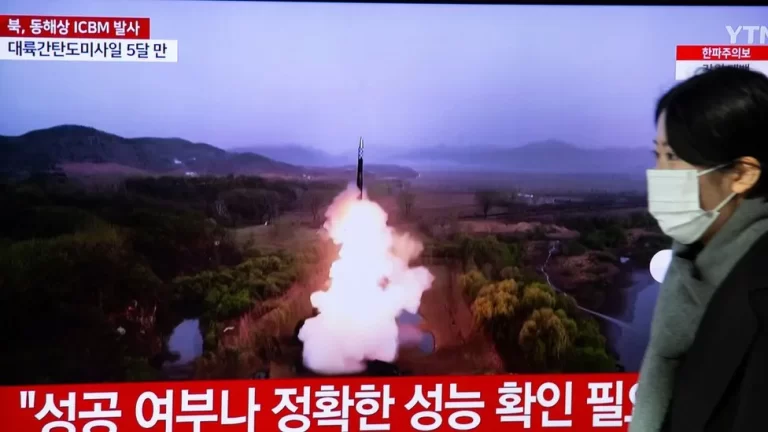North Korea has fired a suspected intercontinental ballistic missile, its second missile launch in hours.
It comes after South Korean and US defence officials met last week to update plans on how to respond to a nuclear attack from the North. In response, Pyongyang on Sunday said it would take “more offensive countermeasures”.
The state launched a short-range missile on Sunday night and the longer-range weapon on Monday morning. South Korean and Japanese officials said they detected the launch of the missile from the Pyongyang area at 08:24 local time (23:24 Sunday GMT).
The missile travelled for 73 minutes, covering about 1,000km, before landing in the sea west of Hokkaido. ICBMS have the range to reach the North American continent. If Monday's launch is confirmed to be an ICBM, it would be the North's fifth launch of such weapons this year- the highest ever for a single year.
Tensions between the North and the South flared last month when Pyongyang successfully launched a spy satellite into orbit, in violation of United Nations sanctions. Seoul responded by partially suspending a military agreement with the North that was meant to limit military activity along the border and reduce the likelihood of clashes.
Pyongyang then withdrew from the agreement entirely. North Korea has since re-armed its soldiers in previously unarmed areas of the Demilitarised Zone. Last week, South Korea's national security advisor Kim Tae-hyo said he was expecting the North to launch an ICBM at some point in December.
It is not yet clear what type of long-range missile was launched. The North's latest ICBM model is the solid-fuelled Hwasong-18 – it last launched the missile in July, following a first successful flight in April.
North Korea is also working to develop a new solid-fuelled medium range ballistic missile. Last month it claimed to have successfully tested the engine, but the missile had not yet been successfully launched. Solid-fuelled missiles can be fired with less warning as they do not need to be fuelled prior to launch.
As North Korea continues to refine and add to its arsenal of nuclear weapons, South Korea and the United States are stepping up their defence of the region.
In a meeting in Washington on Friday, officials updated their contingency plans for how to respond to a North Korean nuclear attack. The two countries also agreed to war-game the use of nuclear weapons in their military exercises next summer.
— CutC by bbc.com


